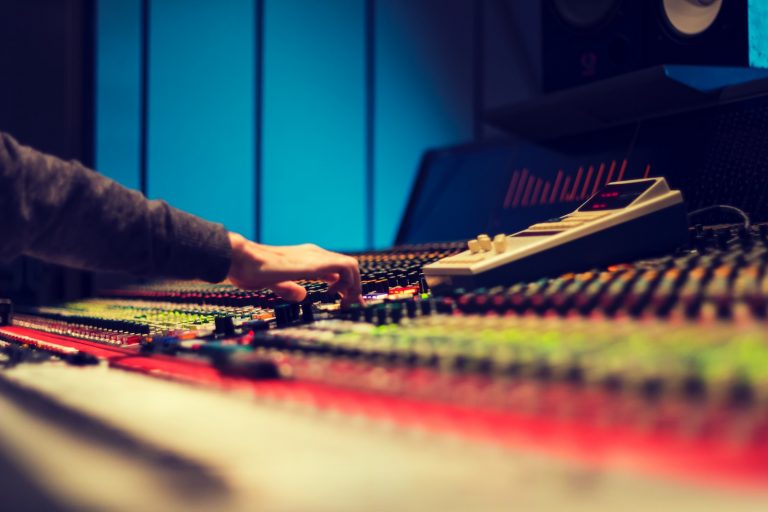Suppose you’re a musician who creates music, whether amateur or professional; it’s essential to understand the difference between mixing and mastering. You may already know they are two separate production processes contributing significantly to audio quality, but you must figure out what distinguishes them. This blog post will provide in-depth insight into how these production steps differ and why both are essential for producing high-quality audio. Learn how understanding the distinction between mixing and mastering can benefit your music-making.
Story Stages
Overview of the Recording Process Before Mixing and Mastering
Before audio mixing and mastering, the recording process is crucial in making high-quality music. It involves capturing the best possible performances of instruments and vocals and ensuring the technical aspects of recording are properly executed. This includes appropriately setting levels, choosing the right microphones and preamps, and making sure the recording environment is conducive to creating a clean and professional sound. With the right techniques and equipment, a good recording can save time and money in the mixing and mastering stages. It is essential to understand the value of investing time and energy into the recording process, as it can ultimately make or break the final product.
What Is the Difference Between Mixing and Mastering
Mixing and mastering are two separate processes that are essential in producing high-quality audio recordings. Mixing involves combining individual tracks of instruments, vocals, and other audio elements to create a harmonious sound. This process includes adjusting levels, panning, equalization, and adding effects such as reverb or delay. On the other hand, mastering is the final step, where the entire mix is polished and processed. It involves fine-tuning the EQ, compression, and loudness levels to ensure the final product is consistent across all platforms and devices. Mixing and mastering are critical stages in producing music or audio recording, and understanding their differences is crucial in achieving professional-sounding results.
The Process of Mixing and Mastering
Mixing and mastering are two essential steps in music production that can often confuse beginners. Mixing involves blending multiple audio tracks to create a cohesive sound. It typically includes adjusting levels, panning, EQ, and effects processing. The goal is to ensure each instrument and vocal is heard clearly in the mix. Once the mix is complete, the next step is mastering. This involves taking the mixed song and preparing it for distribution by adjusting its overall sound to ensure it is as polished and professional-sounding as possible without losing any dynamic range. This is done through final EQ, compression, and limiting to ensure the song is balanced and reaches appropriate volume levels. With these two vital steps, producers and engineers can ensure their songs sound amazing and are ready to be enjoyed by listeners.
How Mixing and Mastering Can Change a Track’s Sound
When it comes to music production, mixing and mastering are two of the most critical steps. These techniques can completely transform the sound of a track and take a good song to new heights. Mixing involves combining all of the different sonic elements of a track – vocals, instruments, drums, etc. – into one cohesive whole. Engineers adjust levels, pan sounds, and add effects during mixing to create a balanced and polished sound. Mastering involves taking that polished mix and making it sound even better by applying compression, EQ, and other finishing touches. The end result is a song that sounds professional and ready for the world to hear. Listen to some before and after examples of well-mixed and mastered tracks, and you’ll see just how much of a difference they can make.
Tips For Getting the Best Possible Results From Mixing and Mastering
When mixing and mastering your music, there are vital tips to ensure the best possible results. First, ensure your tracks are recorded and appropriately edited to avoid unnecessary background noise or distortion. Next, take the time to properly EQ each track to ensure they are balanced and not competing for space in the mix. It’s also vital to utilize compression and limiting to control dynamics and maximize volume. Additionally, consider the placement of each element in the stereo field to create a sense of depth and dimension. Finally, don’t be afraid to trust your ears and take breaks to avoid ear fatigue.
Common Mistakes to Avoid when Mixing and Mastering
Mixing and mastering can be daunting, especially for those new to it. However, making a few mistakes along the way is common, and even experienced producers can fall into some traps. When mixing, keeping the levels in check is essential, avoiding the temptation to crank up the volume on every track. Over-compressing is another frequent mistake that can suck all the dynamics out of the music, making it sound lifeless and dull. When mastering, avoiding over-limiting is crucial, which can result in harsh, ear-piercing audio that no one wants to listen to.
Concluding Thoughts
Overall, mixing and mastering is a complex process that can take quite a bit of time, effort, and practice to get right. Understanding the difference between mixing and mastering and the steps involved is critical to producing professional-sounding music. With proper consideration, careful planning, and getting help from an experienced sound engineer where necessary, you can significantly improve the sound of your tracks with mixing and mastering. Just remember the common mistakes when you’re out there making some great songs: avoid overcompressing; make sure all levels are balanced; don’t forget about dynamics; clean up any technical noise before mastering; be open to other perspectives on your mix; and listen to your final mix on various sound systems at different volumes for a complete experience. With these tips in mind, you should find success in producing great-sounding tracks with excellent mixes and masters.
